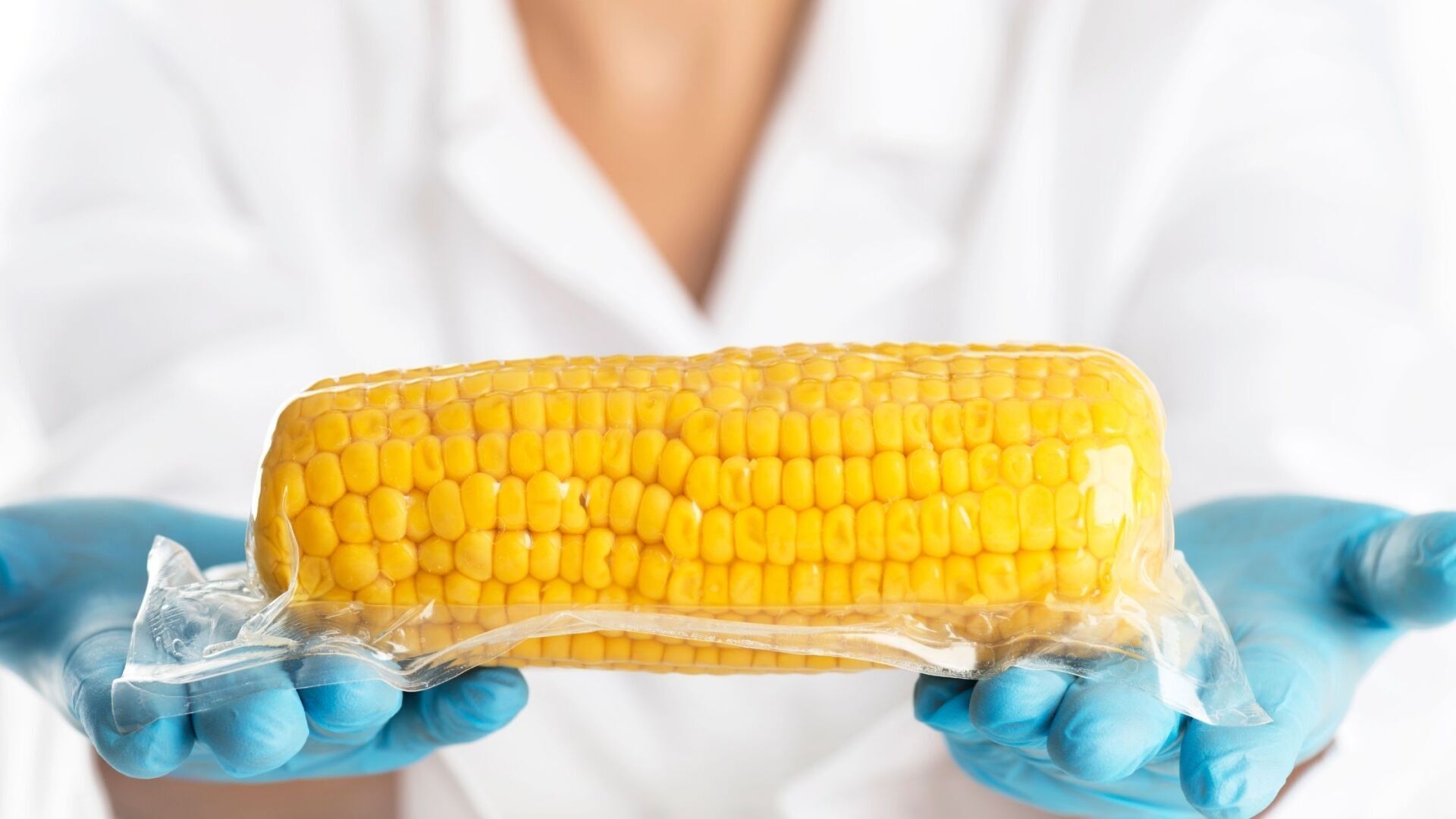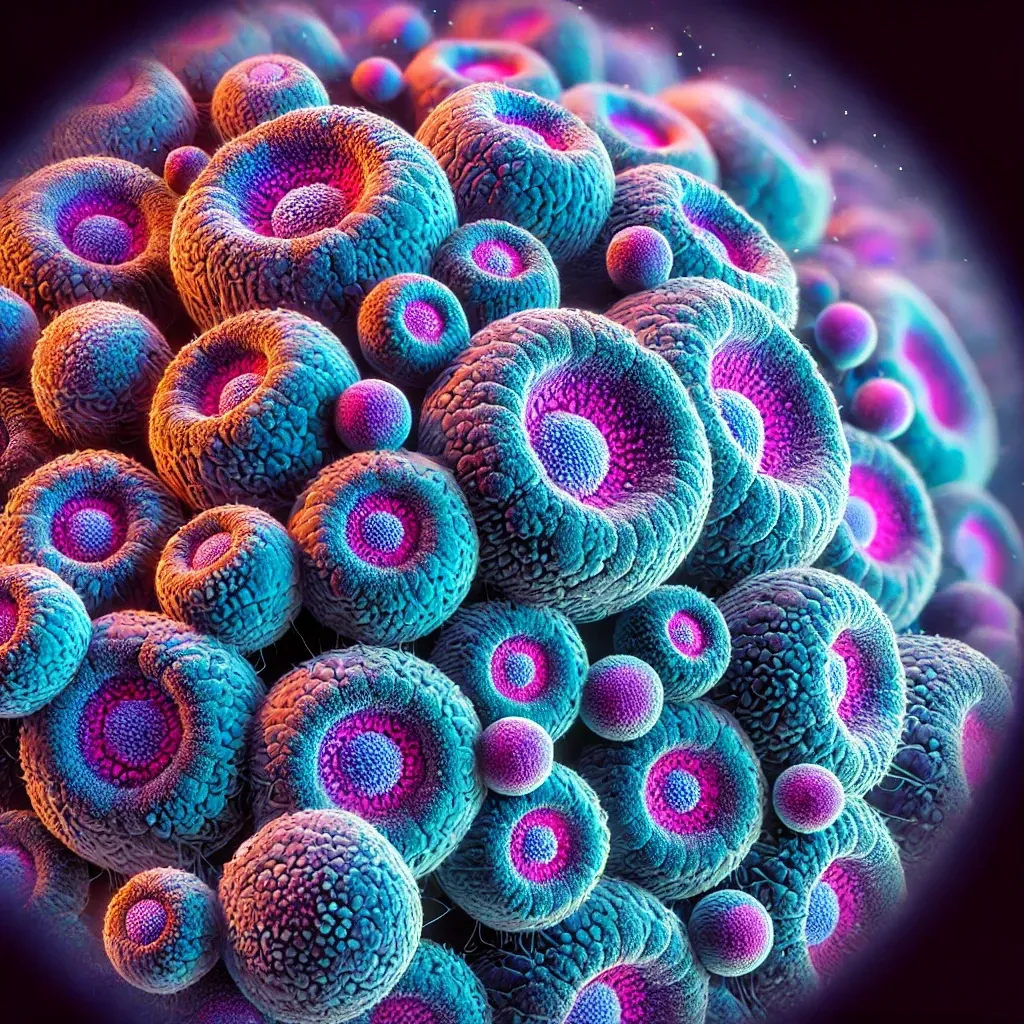Should You Be Concerned about GMOs?
The short answer: absolutely.
Genetically Modified Organisms are plants or animals created through the gene splicing techniques of biotechnology. This is also called Genetic Engineering (GE) and Genetic Modification (GM).
This experimental technology merges DNA from different species, creating unstable combinations of plant, animal, bacterial and viral genes that cannot occur in nature or in traditional crossbreeding.Nearly all commercial GMOs are engineered to withstand direct application of herbicide (these are called Roundup Ready crops) or to produce their own systemic insecticide (Bt corn and Bt cotton).
The majority of items in the grocery store are made with GMOs: corn chips, corn cereal, corn starch, soy milk, tofu, high fructose corn syrup, sodas, non-dairy creamers, salad dressings, baby formulas, candy bars, waffles, seasoning packets, frozen meals, soups, sauces, snack foods... Then there are the individual product ingredients: amino acids, aspartame, ascorbic acid, sodium ascorbate, vitamin C, citric acid, sodium citrate, ethanol, hydrolyzed vegetable protein, maltodextrin, molasses, monosodium glutamate, sucrose, textured vegetable protein, xanthan gum... In other words, GMOs are in most processed foods.
The following crops are being genetically engineered for human consumption [1]:
The following crops are being genetically engineered for human consumption [1]:
- Sugar beets
- Soybeans
- Canola
- Cottonseed (cottonseed oil is a common ingredient in vegetable oils and margarine)
- Corn
- Hawaiian papaya
- Squash
Recently, genetically modified alfalfa won U.S. government approval and is being grown for animal feed. GMO corn and GMO soy are also fed to livestock. If you are not consuming GMOs directly, say by eating corn chips, then you are very likely consuming them in the meat and dairy found in many grocery store products.
What Are the Health Risks Associated with GMOs?
The American Academy of Environmental Medicine called for a ban on GMOs and urges physicians to advise all patients to avoid GMOs [2]. They state that several animal studies of the effects of GMOs indicate serious health risks, including:
- Infertility
- Immune problems including allergies
- Accelerated aging
- Faulty insulin regulation
- Gastrointestinal disease
- DNA damage
- Cancer
The British Medical Society, in 1999, called for a ban on the introduction of GE crops.
As long ago was 1997, scientists warned that genetically engineered food may result in new pathogenic bacteria because GMOs have crossed species lines [3].
Additionally, the use of GMO crops has increased the use of pesticides (which are carcinogenic). Exposure to pesticides is linked to all manner of chronic illnesses including increased risk of reproductive abnormalities, birth defects, neurological problems, allergies, and cancer.
Industry points to the lack of a “smoking gun.” Deniability of health problems is easy when they come on slowly as opposed to a pandemic. Remember, it took 20-plus years for the U.S. government to admit that smoking causes cancer. Meanwhile, we saw a lot of industry-sponsored studies that smoking was not harmful. There were a lot of industry lobbyists behind the scenes working to keep cigarettes on the market. Today, we see the soda industry in a similar battle as more and more experts, including CNN’s Dr. Sanjay Gupta, place considerable blame for the obesity epidemic on the soda manufacturers’ products.
Bottom line: human problems may be hidden for years, and may be masked by well-financed public relations campaigns, industry-sponsored studies and lobbying. Don’t trust those guys just because they say it’s alright. When has putting unnatural substances into the body ever turned out well in history?
- https://gmo.geneticliteracyproject.org/FAQ/which-genetically-engineered-crops-are-approved-in-the-us/
- https://www.aaemonline.org/gmo.php
- https://www.ncbi.nlm.nih.gov/pmc/articles/PMC3791249/
Don't Miss Out On More!

Heidi Toy FNTP
I help people all over the world heal by identifying and treating the root cause of their body imbalances. Through diet and nutrition, I guide them towards wholeness and balanced lives.
Heidi Toy Functional Medicine Blog

Did you know most people didn’t have refrigerators in their homes until well into the 1900’s? It wasn’t even invented for large scale commercial use until the mid 1800’s [1]. So how did people keep their milk cold and make their food last longer? Fermentation. It sounds like a gross concept, because we often associate fermentation with a bad odor, but foods like cheese, yogurt, sauerkraut and pickles are all fermented foods. And those aren’t gross, are they? Well, some might disagree with me about sauerkraut, but that’s beside the point. Fermented foods are digestive aids. Microscopic living organisms in fermented foods help extend the food’s shelf life, enhance flavor, and help the body absorb minerals. These organisms pre-digest the food, getting rid of harmful components, and create more vitamins and enzymes than the food began with. Enzyme-rich foods have many benefits including [2]: Increase digestibility of food we eat Boost immune system Increase alkalinity; neutralizing pH levels Provide a healthy balance of friendly flora in the gut (Learn more about your microbiome in my other blog posts ) Tone the colon and help with elimination Control cravings for unhealthier foods Eliminate toxins and undigested wastes in the body In the “old days,” people use to ferment all kinds of foods through pickling, canning, pasteurization and added salt. Nowadays, however, large scale fermentation has lost many of its nutritious benefits due to the need for speed to get the product on the shelf as fast as possible and as cheap as possible. The only true fermented foods you will find are sauerkraut, kombucha, yogurt and kefir, beans, wine and beer, some meats (such as salami and pastrami), legumes and nuts (such as tofu, soy sauce and miso), sourdough bread, and various kinds of vegetables [3]. Fun facts about sauerkraut: The Germans “stole” it from the Chinese! Sauerkraut (probably not labeled as such for the Chinese, but the same recipe) was one of the main foods for those who built the Great Wall of China. Genghis Khan brought it to Eastern Europe during an invasion. It also contains high levels of vitamin C, and sailors often took it on long journeys to prevent scurvy.

How can we best keep blood sugar stable? Do what our body is designed to do – use fat for energy. Our species did not survive the Ice Age because of vanilla coffee lattes and cheesecake. Throughout most of our history, we ate a diet that was likely 50-70 percent fat. Look at the old family photo albums, specifically pictures of people in the first half of the 1900s, before we had so many processed foods. You won’t see many fat people--in fact, most look darn skinny. If they lived on the farm, they ate lots of eggs, meat, milk, and vegetables out of their own backyards. “Diet foods” were non-existent. Heart disease was almost non-existent. Our metabolism is designed to work much better with fats better than with sugar. Fats provide the slow and steady fuel our body likes to use for energy. Think of fats as a slow-burning log on the fire. One log (i.e. one meal containing fats) lasts for hours. Starchy carbs, on the flip side, are like kindling. You constantly have to throw more twigs (chips, pasta, bagels) to keep the fire burning. The first step is to know your sugars by reading the labels, and then avoid said sugars as much as possible.

Omega-3 and Omega-6 are considered “essential” fatty acids because they cannot be produced by the body--we get them from the food we eat. They are biologically active upon ingestion, which means the body utilizes them right away and cannot store them up for later. They are essential because they help with both inflammatory and anti-inflammatory responses.












































































































